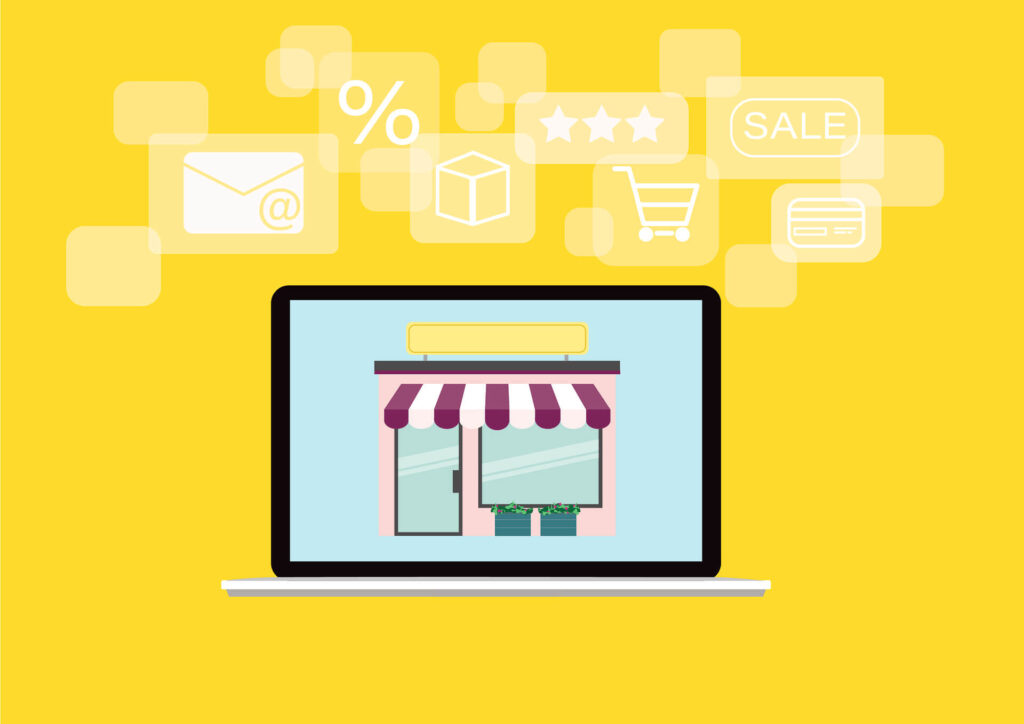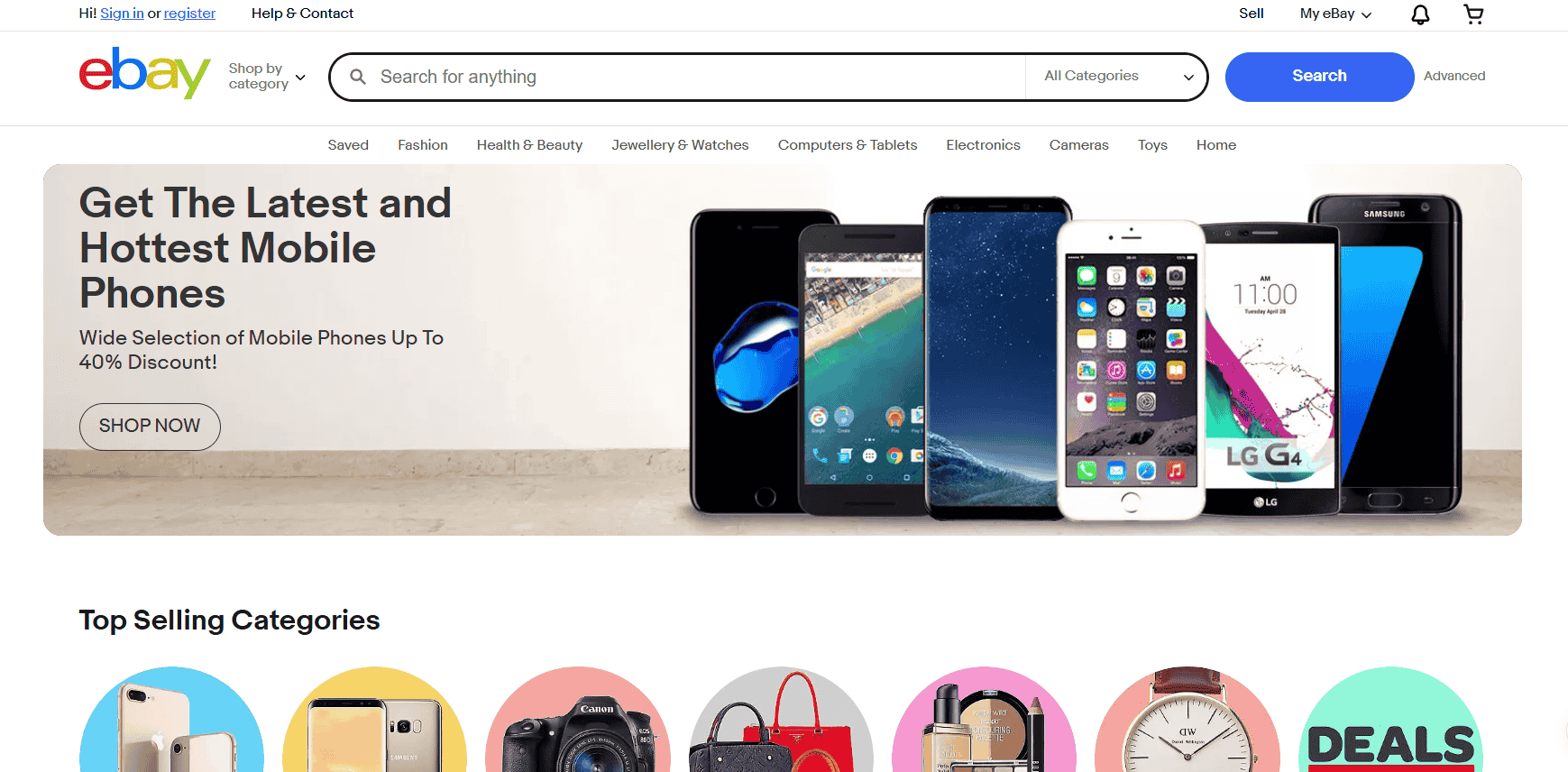Launching your online store should be exciting, not overwhelming. But for many small business owners, the first question is also the hardest: where do you even start?
If you’re looking for the best ecommerce website builder for small business in 2025, you’re already ahead of most. After all, your choice of platform can make or break your ecommerce journey.
I’ve seen sellers pour their hearts into a product only to hit a wall because their website couldn’t keep up, or worse, it confused their customers and lost sales.
-
Choosing the best ecommerce website builder for small business is about finding the right fit for your goals, products, and workflow.
-
Shopify is the top choice for small business owners who want to scale fast and sell on multiple channels like TikTok, Amazon, and Instagram.
-
Wix offers creative freedom and ease of use, making it ideal for beginners, artists, and personal brands starting from scratch.
-
Square Online is a budget-friendly option for local sellers who want to test ecommerce without upfront costs or technical hassle.
-
Features like built-in SEO tools, mobile responsiveness, and multichannel selling are now essential, not optional, for ecommerce success.
With online competition growing fiercer by the day, a beautiful website isn’t enough anymore. You need speed, mobile responsiveness, built-in SEO tools, and marketing features, all without paying an agency thousands of dollars.
Shoppers these days won’t wait around for a slow site to load or scroll endlessly to find the “Add to Cart” button. They bounce and they don’t come back. So today, I want to help you pick the platform that gives you the most bang for your buck.
Whether you’re selling handmade candles from your kitchen or launching a niche apparel brand from your garage, there’s a builder out there that fits your goals, your budget, and your style. Let’s find it.
What Makes a Great Ecommerce Website Builder for Small Businesses?
Not all website builders are created equal. Some are flashy but rigid, others are cheap but limited. And then there are a few gems that really help small businesses thrive.
As someone who’s helped dozens of online sellers go from zero to consistent sales, I can tell you that simplicity and scalability matter most.
Ease of use is non-negotiable. You shouldn’t need to know code to build a stunning store. If you’re spending hours watching tutorials just to add a banner, that’s a red flag.
A great ecommerce website builder for small business should offer drag-and-drop tools and intuitive dashboards that let you focus on selling, not stressing over tech.
Affordable pricing is another dealbreaker. Many platforms seem cheap upfront but nickel-and-dime you with add-ons and sneaky transaction fees.
Make sure you choose a plan that fits your current budget without punishing you when you scale up. Small business owners need room to grow, not financial handcuffs.
Built-in tools matter more than ever, too. SEO optimization, mobile-friendly design, analytics, and product and order management aren’t bonuses anymore. They’re the bare minimum. If your platform can’t help you attract traffic, convert visitors, and manage your shop efficiently, it’s not doing its job.
And speaking of growth, your platform needs room to grow with you. Whether you’re launching a new product line, adding a team member, or expanding to TikTok Shop or Amazon, your ecommerce website builder should evolve with your business, without forcing you to start from scratch.
Lastly, reliable support can save you from major headaches. Something will eventually break—it’s part of running an online store. But when it does, you need quick, knowledgeable help.
The best platforms offer chat, email, and real support from real people, not just a bunch of outdated help docs.
Here’s a quick comparison of the top platforms:
Platform Best For Starting Price Free Trial Notable Features
Shopify All-around scalability $39/mo Yes App store, mobile optimization
Wix Creative control $27/mo Yes Drag-and-drop builder, flexibility
Squarespace Visual-driven businesses $23/mo Yes Design templates, marketing tools
BigCommerce Multichannel selling $39/mo Yes SEO and bulk product tools
Square Online Budget-conscious sellers Free-$29/mo Yes POS integration, local delivery tools
Which Ecommerce Website Builder Is Right for You?
Choosing the best ecommerce website builder for small business is a business-defining decision. With the right platform, you can launch faster, reach more customers, and scale without the usual headaches. Let’s break down which builder fits your needs, your budget, and your long-term goals.
1. Shopify: Best Overall for Small Businesses
If you plan to sell a wide range of products or scale quickly, Shopify is your best bet. Whether you’re selling handmade candles or custom sneakers, Shopify gives you the digital tools you need to look professional from day one.
You get everything: secure checkouts, fast-loading pages, and multichannel selling through Amazon, TikTok, Instagram, Facebook, and more. It’s like having a digital department store manager that never sleeps.
I’ve worked with dozens of small sellers over the years, and Shopify consistently outperforms when growth is the goal. One client, a handmade soap business in California, launched with just 12 products and minimal tech experience.
By month eight, they were handling over 200 orders a week, and Shopify didn’t flinch. The backend handled the volume without hiccups, and the app integrations let them automate shipping and upsells effortlessly.
Here’s what you get under the hood:
- Dozens of sleek, mobile-responsive templates
- Access to over 8,000 apps for everything from email to loyalty programs
- Abandoned cart recovery to bring back lost sales
- Built-in SEO tools and schema markup that actually move the needle in Google rankings
Shopify isn’t the cheapest option on the list, but if you’re serious about turning your online store into a full-time business—or even a brand people recognize—it’s worth every dollar. Think of it like paying rent for the best location on a digital Main Street.
2. Wix: Best for Beginners and Creatives
Wix is ideal if you want to launch fast, get creative, and have full control over how your site looks. You won’t need to touch a line of code. Just drag, drop, and publish. It’s visual, intuitive, and honestly kind of fun to use.

Wix shines for personal brands, handmade sellers, and niche creators who want their website to feel like an extension of their personality.
One of my clients, a jewelry artist in New York, used Wix to tell her story through imagery and short-form video. Her site didn’t just look great. It created an emotional connection. And in ecommerce, that’s everything.
Beyond design freedom, Wix includes:
- Real-time shipping calculators
- AI design suggestions based on your industry
- Basic inventory and order management
- Integrated email marketing so you can build a list from day one
That said, Wix starts to show its limits when your store grows into hundreds of SKUs or when you need advanced analytics. But for getting off the ground and standing out visually, it delivers in a big way.
3. Squarespace: Best for Visual Brands
If your brand is highly visual—think photographers, graphic designers, or anyone selling digital art—Squarespace might be your perfect match. Its award-winning templates look good on any device, and everything feels curated out of the box.
A former client of mine was selling downloadable wall art and struggling on Etsy. We migrated her shop to Squarespace, set up her branding properly, and added a blog with SEO-focused content.
Her conversion rate jumped by 35%, not because she changed her product, but because the storefront finally matched the premium feel of what she was offering.
Squarespace packs in:
- Elegant email marketing tools
- Built-in blogging platform for organic traffic
- Basic inventory management
- Social media integration that makes sharing seamless
If you’re running a lean operation with a few standout products, Squarespace helps you punch above your weight. It’s not built for complex operations or high-volume sellers, but it delivers a polished and modern look with minimal effort.
4. BigCommerce: Best for Product-Heavy Stores
BigCommerce is Shopify’s lesser-known cousin. But don’t let that fool you. If you’ve got a big product catalog, sell across multiple platforms, or need powerful SEO tools, this platform was built with you in mind.
You get enterprise-level features without needing an enterprise-sized budget. BigCommerce supports:
- Google Shopping integrations
- Product-level SEO customizations
- No transaction fees (a huge plus as your sales grow)
- Product filtering and variant control built in
I had a client selling outdoor gear, everything, from survival backpacks to camping cookware. They were drowning in spreadsheet updates until we moved them to BigCommerce. Not only did the platform handle their 500+ products with ease, but it also synced everything to their eBay and Amazon listings.
If your business relies on having a robust backend that won’t buckle under bulk, BigCommerce is quietly one of the most powerful ecommerce platforms for small business owners ready to scale.
5. Square Online: Best for Local Sellers and Tight Budgets
If you’re running a local store or weekend market stall and want to dip your toes into ecommerce without blowing your budget, Square Online is the way to go.
Especially if you’re already using Square’s point-of-sale system in your physical store, because the sync is seamless. You can literally set up your ecommerce site in an afternoon and start taking orders the next day.
One of my clients—a weekend food stall owner—used Square Online to set up a pre-order system. Customers could browse her menu mid-week, place orders, and pick them up at the market.
She didn’t spend a cent until the orders came in. That free plan gave her room to experiment, build confidence, and eventually upgrade to a custom domain.
Square Online offers:
- Instant POS-to-online inventory syncing
- Local delivery and pickup options
- Basic design tools that keep things simple
- A forever-free plan with the option to scale later
It’s not made for flashy design or big catalogs, but it’s hands-down one of the best ecommerce website builders for small business owners who want to start lean and grow smart.
How to Choose the Right Builder for You
Choosing the right ecommerce website builder is all about fit. You’re selecting a business partner that shapes how you show up online, how you engage with customers, and how easily you manage your day-to-day operations.
Start by asking yourself the right questions. Are you more design-focused or product-focused? If visuals are everything—say you’re a designer, photographer, or maker—then you’ll want a builder that gives you full creative control.
But if you’re focused on moving a lot of products, fast, then functionality and inventory management should be your top priority.
Next, think about how many items you’re actually selling. Will you be managing a large inventory? A few handmade items? You’ll be fine with something simple.

But if you’re dealing with hundreds of SKUs and multiple variants, you’ll need robust inventory tools, bulk editing options, and a system that keeps your catalog clean and organized.
You also need to consider your marketing and content strategy. Do you want a blog or marketing tools built-in? Content is a silent seller.
A built-in blog can boost your SEO, while email tools and pop-ups can keep shoppers engaged. Without these features, you’ll likely end up juggling too many third-party apps just to stay visible.
And what about where you plan to sell? Is multichannel selling important to you? If you’re planning to sell on Facebook, Instagram, Amazon, or TikTok in addition to your website, your builder should support seamless integration. Not every platform does, and trust me, patching things together later is a headache you don’t want.
Your answers will naturally point you in the right direction. And if you’re still torn between a few, test them out. Most offer free trials. Spend an hour playing around inside. See what feels intuitive and what doesn’t. The right builder should make your ideas easier to launch, not harder.
If you’re just starting, Wix or Square Online are great low-risk options. But if you’re thinking long-term and want to scale, Shopify is hands-down the best ecommerce platform for small business in 2025. It’s built for sellers, not just websites.
That said, no platform can save a business with bad product photos, unclear messaging, or a lack of consistency. A great builder can help you grow, but you’re still the engine. Choose the platform that works for your workflow, not someone else’s highlight reel.
The best ecommerce website builder is the one that empowers you to sell with confidence, manage with ease, and grow without limits.







